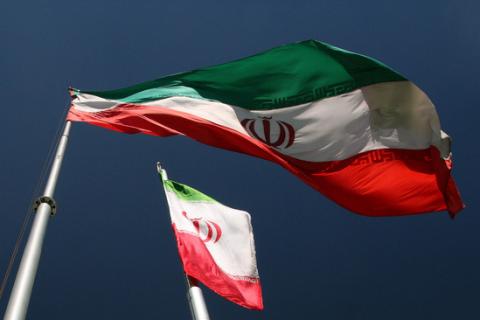Why closing the Irish Embassy in Tehran is a mistake

The recent furore over the closure of closure of the Irish Embassy to the Vatican drowned out any discussion over the withdrawal of other embassies, including that in Tehran last month. Almost unnoticed, Iran has been lumped in with Timor Leste as one of two other Irish diplomatic missions that is surplus to requirements. Ireland now has no resident diplomat in any country in a straight line from Cyprus to India. Politically, Iran, Afghanistan and Pakistan will now be covered by thinly staffed embassies on the edges of the Middle East region.
The Minister for Foreign Affairs, Eamon Gilmore, has justified the closure of the Irish Embassy in Iran on the basis of disappointing bilateral trade between the two countries in recent years. This is to be expected, at least in the short-term, as a consequence of the dispute over Iran’s nuclear programme. But sanctions are not forever. If a deal is reached to break the nuclear deadlock, then major opportunities exist for boosting Irish trade with Iran, which has one of the largest shares of proven oil and gas reserves in the world.
Eamon Gilmore’s statement also speaks volumes as to Ireland’s lack of serious political interest in Iran and the wider Middle East. It also underestimates Ireland’s clout. Many Iranian officials speak admiringly of Ireland for its long opposition to colonialism, its early identification with the Palestinian cause and for choosing not to join NATO.
Iranian officials also say that they respect Ireland for taking a more consistent position on nuclear proliferation than other European countries, including speaking out against the normalisation of trade in nuclear technology with India, which, unlike Iran, refused to sign the Non-Proliferation Treaty (NPT) on nuclear weapons. Ireland is perceived as a guardian of the principles of the NPT, the original signing of which owes much to the vision and perseverance of a previous Minister of Foreign Affairs, Frank Aiken, more than forty years ago. Iran’s NPT obligations have been an important means of testing the credibility of a regime that claims to be pursuing nuclear technology for civilian purposes.
The Government points to the EU as a means of influencing events in Iran, without maintaining an embassy there. However, a preference among France, Germany and the UK to retain separate representations at talks on Iran’s nuclear programme, pursuing distinct policy positions, raises questions as to EU’s exact role. If the EU High Representative for Foreign Policy, Catherine Ashton, is merely a convenor and facilitator of the P5+1 (China, France, Russia, the UK, the US + Germany) talks with Iran, where does that leave representation of the views of other EU member-states, including Ireland? It is unfortunate that Ireland is ceding hard-won diplomatic influence in Tehran at the moment when its voice is more badly needed than ever to avoid another conflict in the Persian Gulf. By withdrawing diplomats from the region, the Government will also lose the political context with which to inform and monitor its sizeable aid commitments towards stabilising Afghanistan and Pakistan.
The Government’s lack of ambition in the Middle East is disappointing. During severely testing economic times in the past Irish governments saw the wisdom of maintaining an Embassy in Iran. Reversing that policy is a mistake.
Edward Burke works for the Centre for European Reform.
Image top: yeowatzup.
